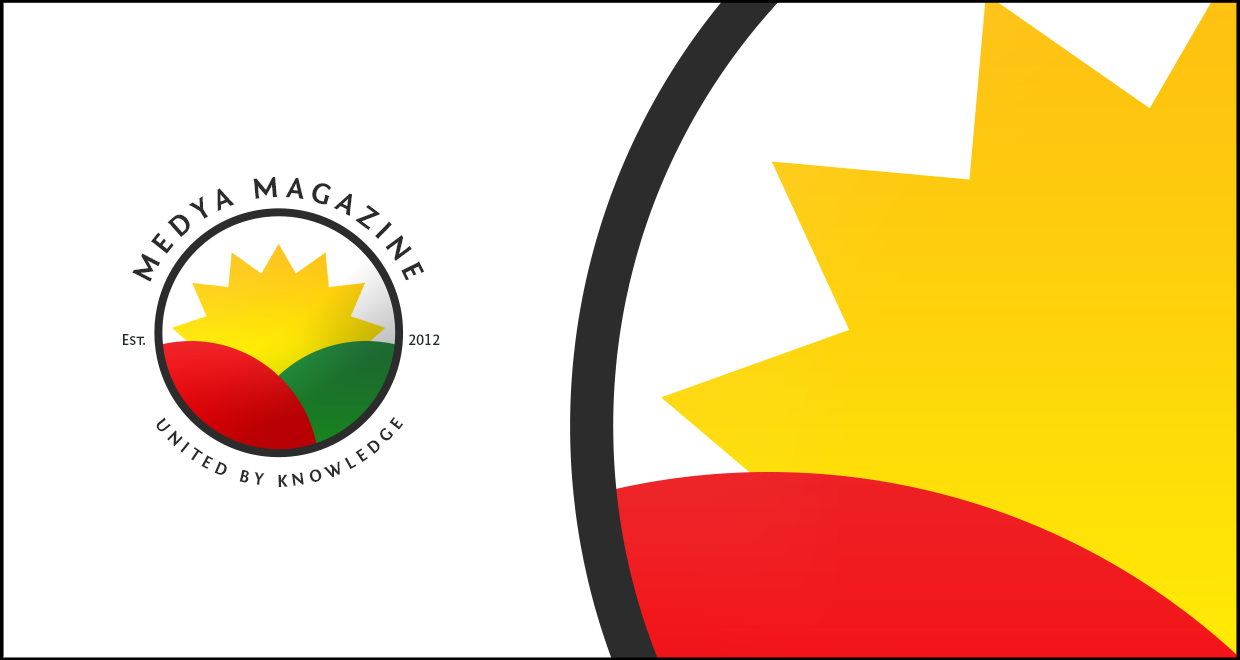Daily the serpents would throttle him so abusively that death became a prayer. He would moan and yell with his echoes reaching the top-most peaks. He offered rewards and treasures to everyone and anyone with an end to his agony. Then a sedative was introduced: the brain of men! Two were selected each day to sedate the pain, sacrificed like lambs to the lion.
Six of my boys were given as an antidote to his suffering and after the sixth, the black engulfed my soul and revenge filled my heart. Idleness was no longer an option
– Kawa (Kaveh) the Blacksmith
Newroz is the celebration of light after darkness. It is celebrated on the spring equinox, a time when Kurdistan begins to flourish under the suns’ rays. Widely understood as a time of rebirth and new beginnings, Newroz is a fiery spirit that holds a deep seeded significance within every aspect of Kurdish culture. One of the most prominent outlets widely used to express its significance is that of music.
During latter parts of Kurdish history, music in the form of lyrics and lyrical poetry became the main avenue for expressing the theme of Newroz as it related to the developing Kurdish identity. Poets and writers from Melayê Cizîrî, to Ehmedê Xanî and Pîramerd are well known for their use of the celebration of Newroz – both in myth and the actual celebration – in their written works.
The poetic language of Newroz was also incorporated in musical lyrics and singers from every era have covered this folklore.
Eyaz Zaxoyî, born in Zaxo in 1961 was amongst many who during times of unrest and danger did not stand idle while Kurdistan was facing annihilation. Several writers and poets had written for him, among them: Ebdulezîz Silêman, Bedirxan Sindî, and Beşar Mihemed.
Eyaz Zaxoyî is well known for his rendition of the song “Newroz” that poetical plays on the theme as both a symbol of the Kurdish identity and that of a day of celebration. Regularly played at Newroz festivals, his song has become a staple of this day and the celebration it brings.
Every March 21st, he sings in death his song as a dedication to those living and dancing in the new day: **
Newroz hat bi gul û rîhan – Newroz is here (bringing) flowers and fragrant plants
Cejna me ya li 21 ê – Our (Kurdish) holiday on the 21st
Ew Newroza bîka cwan – The beautiful bride that is Newroz
Agrî hil kin li serê rêkê – Light the fire at the head of the path (for her)
Yadgar e ji bav û bapîra – An inheritance from our forefathers
Wan şkandî qeyde zincîra – (Those) who broke fastened chains
Der kirin rojhelata me – (They) brought light to the future/path ahead
Dê rabin hil kin qetîra – Now go and light the torch(es)
Newroz hat û roja nî ye – Newroz is here and it is a new day
Rengê gula xemlandî ye – The flowers have adorned themselves with colours
Hemî wara dîlan rabî – In every region dancing has sprung
Tev da aheng û kenî ye – Everyone is in celebration
Wan jelala av lê bûş e – The waterways are flowing heavily
Seyran li van mila xoş e – Picnics/outdoor celebrations are (filled with) joy in these parts
Kal û rewişt e me Kurda – The ancestry and (cultural) canvas of the Kurds
Cejna Newroz mendehoş e – The celebration of Newroz is a (pleasant) surprise/delight
Newroz hat û roja mêra – Newroz is here, the day of men
Milet xwirî wekî şêra – The nation roused like a lion
Rûxandin dûşkinê yara – (They/Enemies) destroyed the lovers’ cove
Bilind bî ala dilêra – (But) the flag of dedicated lovers has risen
Newrozê hey lê, lê Newroz – Newroz, oh Newroz
Tu roja mêrin xwedan soz – The day of men with promise
Dê mînî pêşkûşekî gêş – You will forever remain a sprouted seed (of promise)
Bû me Kurda cejnek pîroz – For the Kurds a celebrated day
As is customary in Kurdish art, there is always a hint of patriotism and an overload of the undying spirit of the Kurdish nation. Several stanzas speak to the rise of the nation after a period of unrest and torment. Other stanzas elevate the need for Kurds to continue their fight against oppression and preach the forward march to freedom.
In death, as he was in his lifetime, Eyaz Zaxoyî is a symbol of the relentless nature of the oppressed against their oppressors. In a time of restriction of expression physically, ideological, and culturally Eyaz decided that idleness was no longer an option and musically paved the path of the Kurds forward.
**Note: Author of the poem above unknown

